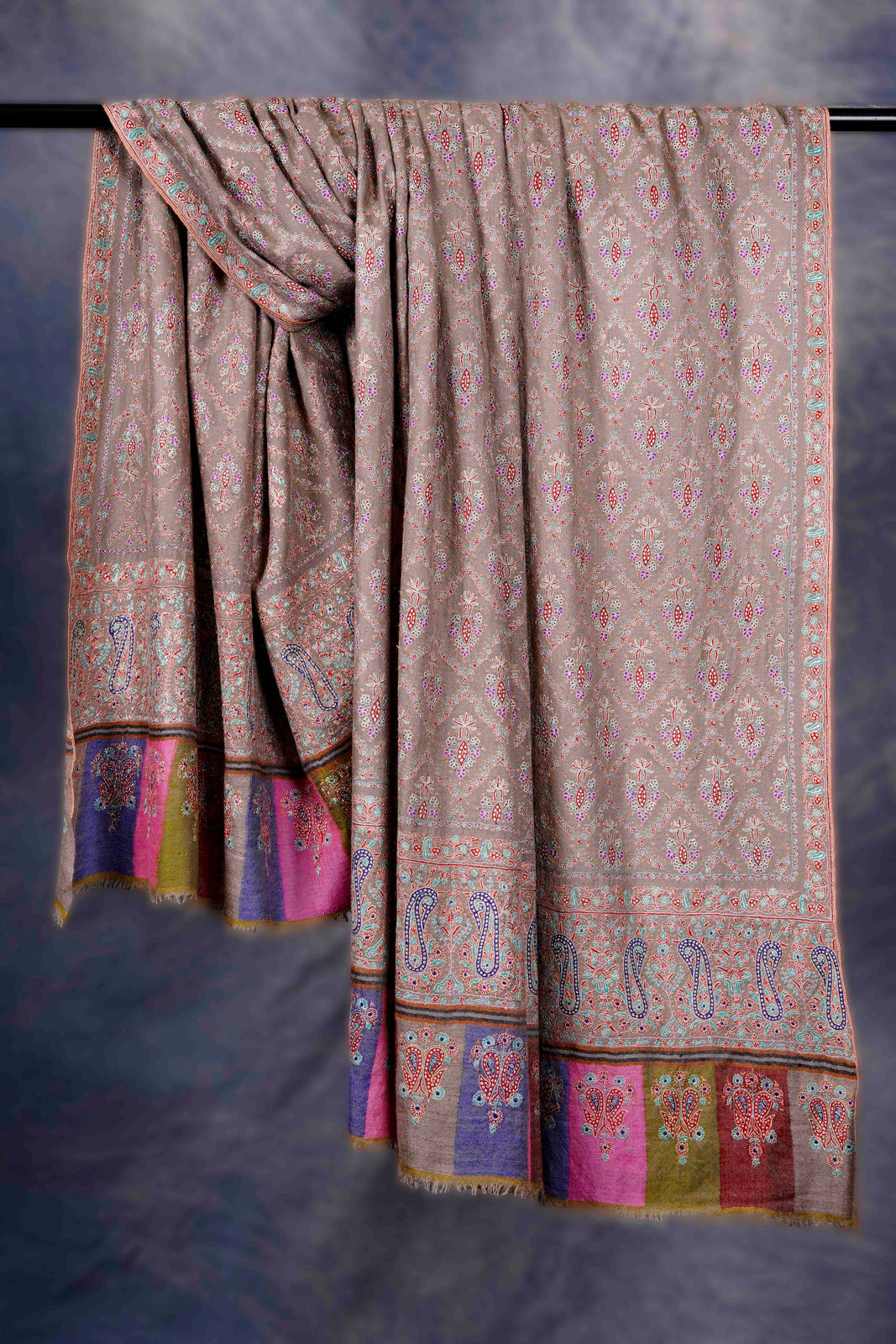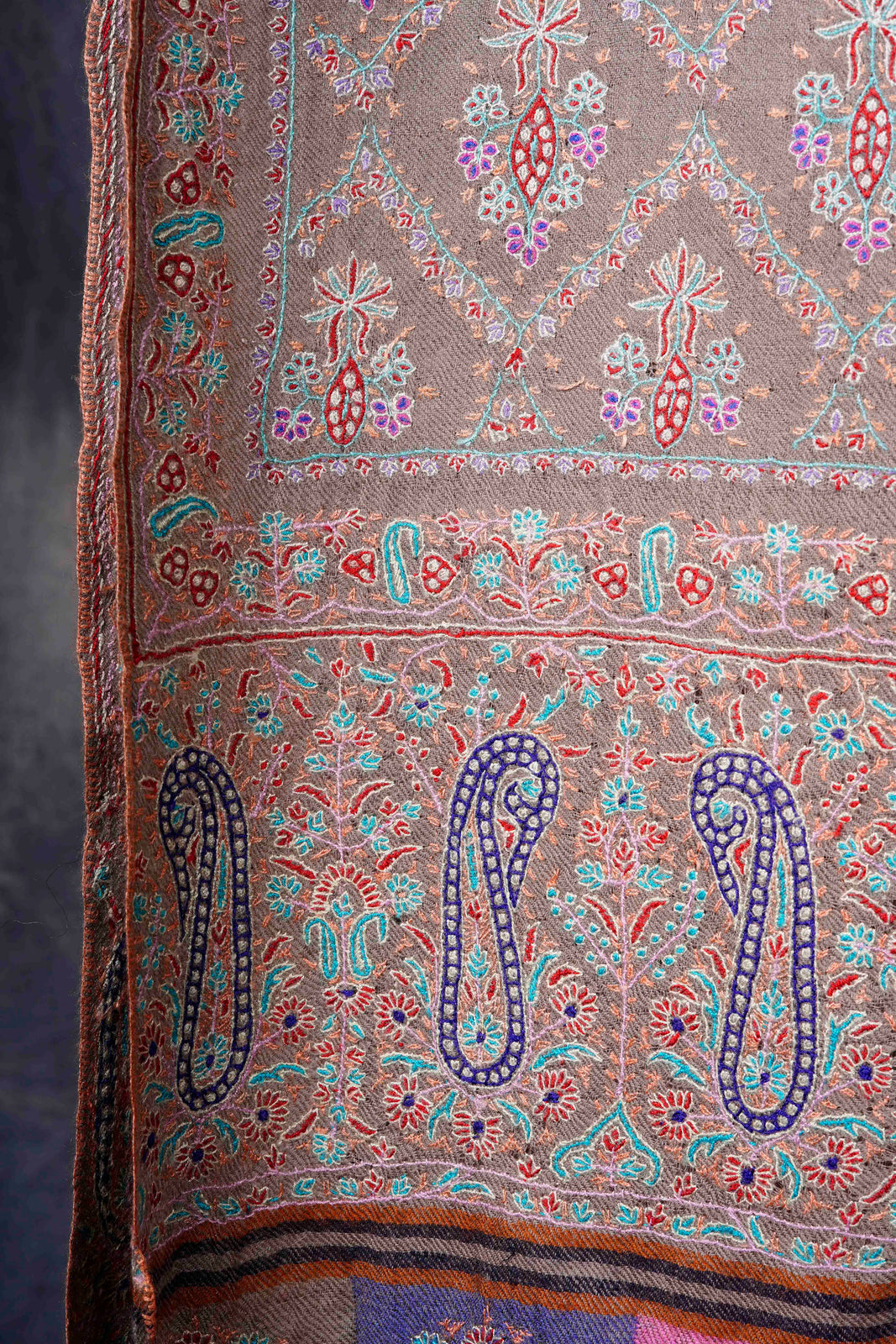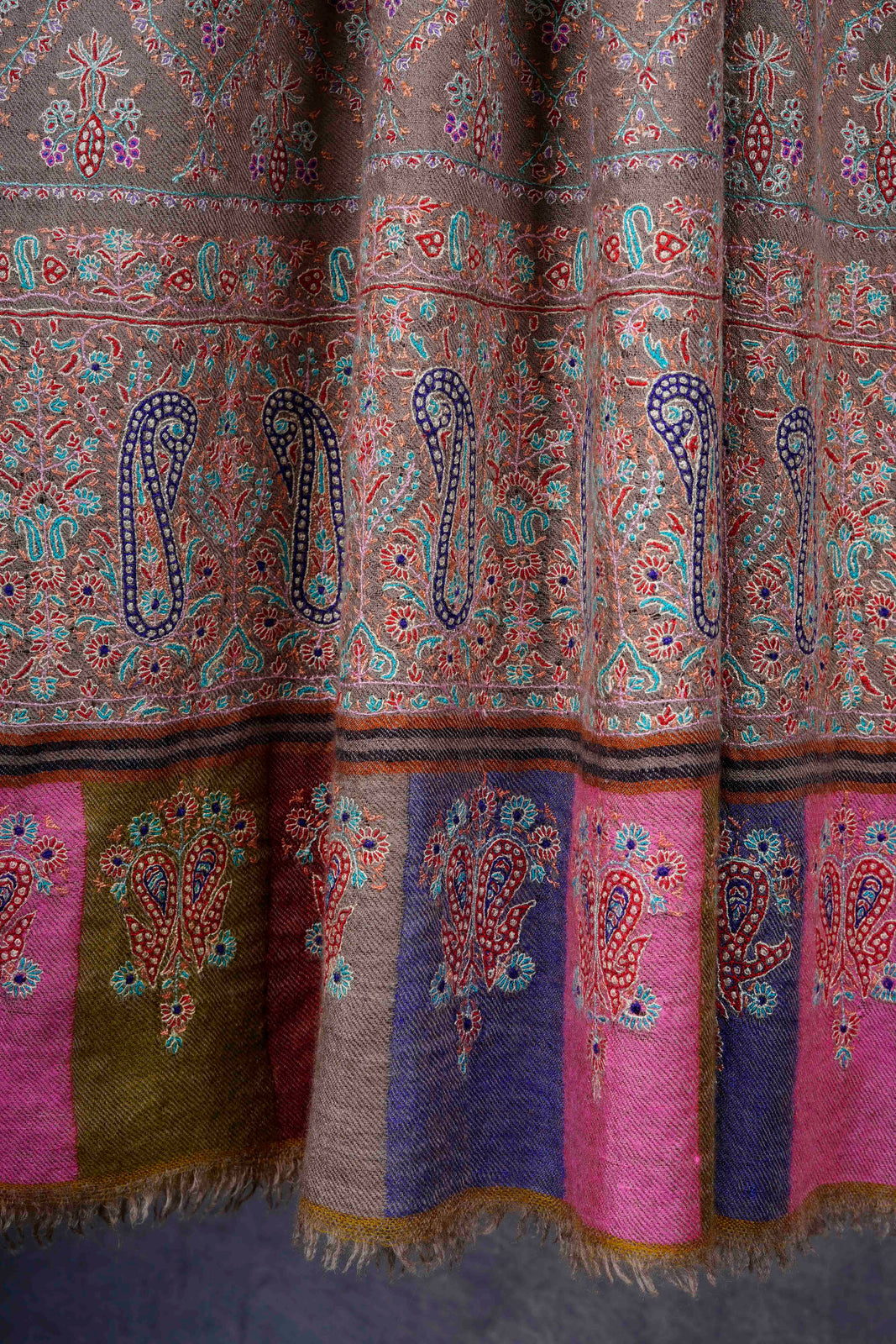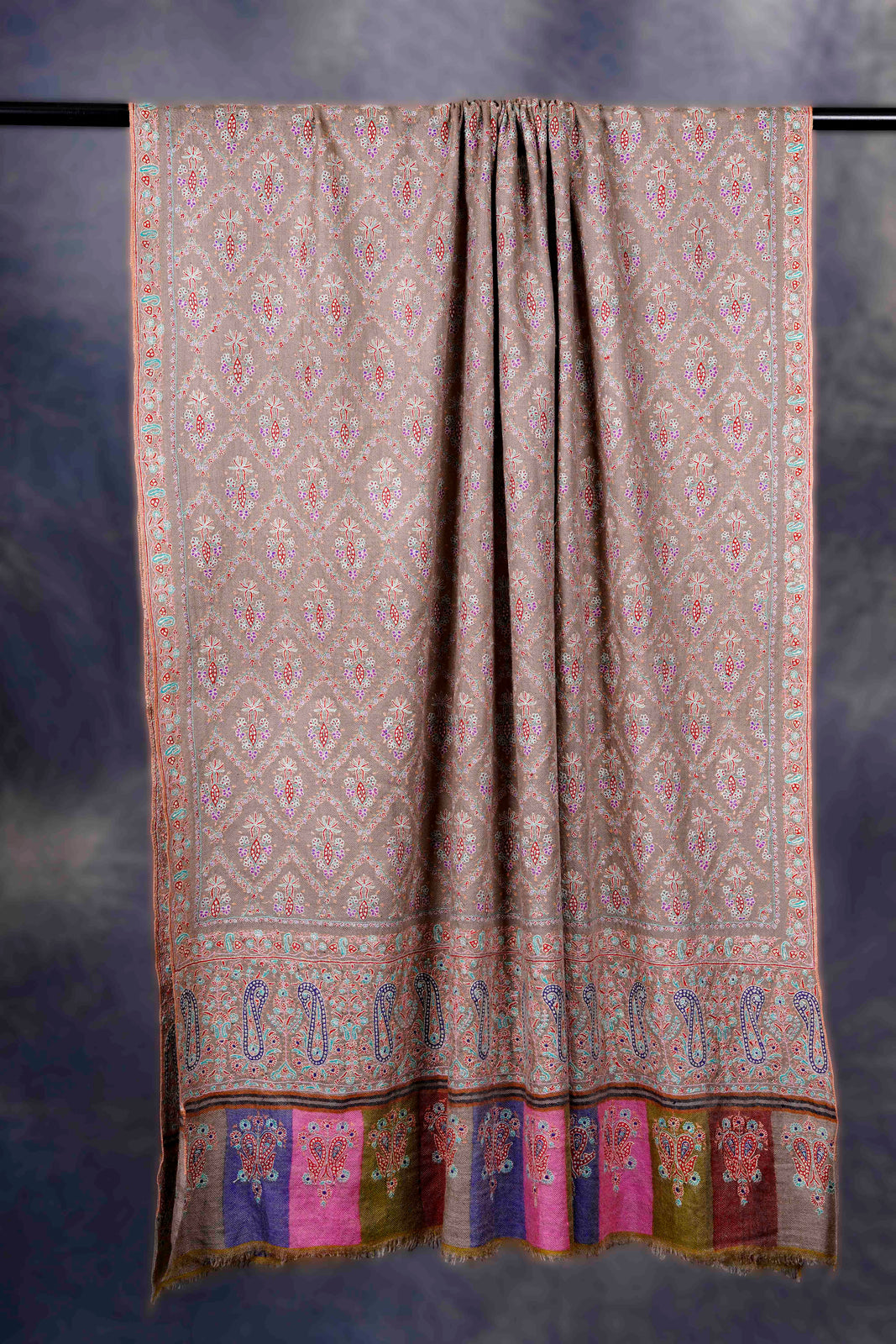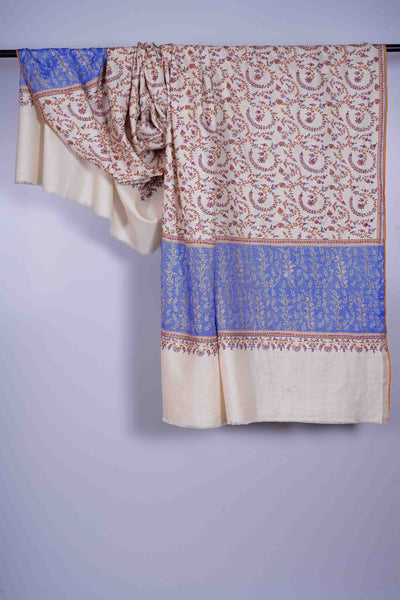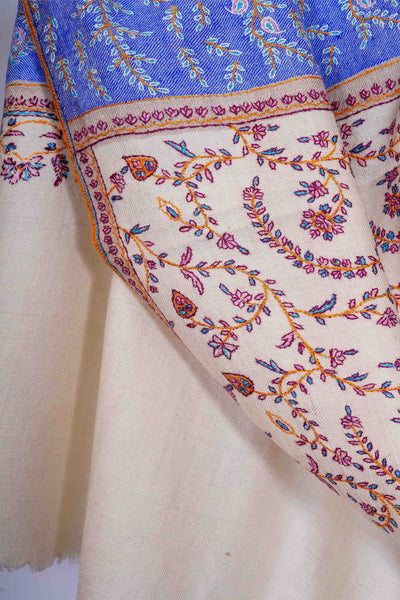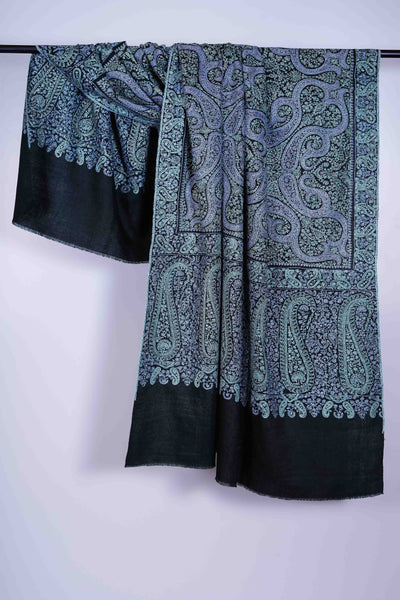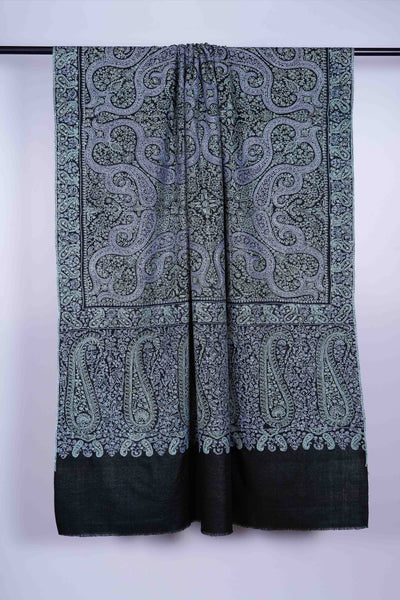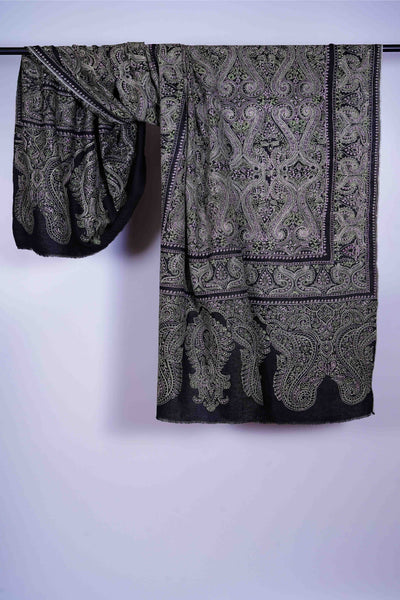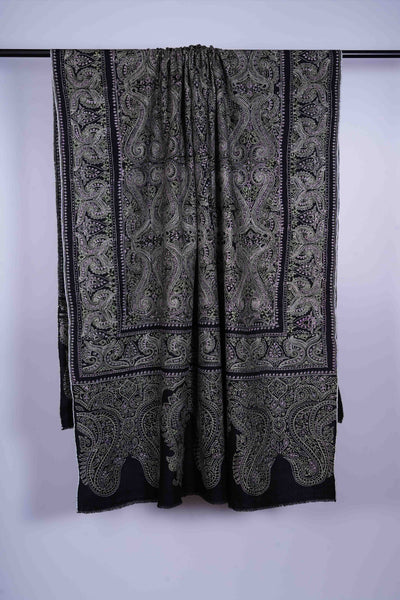On Orders Over $200*
Expertly handwoven from lush pashmina, this jamawar shawl offers both style and warmth. The natural color base complements the intricate sozni embroidery for a timeless appeal. Perfect for any weather, this shawl is a versatile addition to your wardrobe.The crafting of this embroidered pashmina cashmere shawl has taken 2 months of intricate embroidery craftsmanship. To know more about Sozni Pashmina Embroidery process, please visit our pashmina embroidery making page.
MK91-25
100 X 200 CMS or 40 X 79 INCHES
300 gms or 10 oz
Hand Loom Weaving
Time taken to Weave: 4 to 7 days
Sozni Hand Embroidery
Time taken to Embroider: 18 Months
Made in Kashmir, India
100% Kashmir Pashmina Cashmere *
This product it handmade and slight variations in its fabrication make the piece authentic and truly beautiful. Please note the actual fabric colors may vary due to differences in monitor color depth and make. The color shown is as close as possible to the actual colors of the shawls.
*Verified by independent textile testing labs across the globe.
Ships within 24 hours from placement of order
International Delivery Time: 5 to 10 working days.
Delivery Within India: 2 to 5 working days
Ships from Kashmir, India
All our products go through rigorous quality checks before dispatching. However, in some case we may miss out on some minor manufacturing defect. In such case we offer 100% refund to you. Please see T&C for further details.
This product is made of natural fibers and utmost care should be taken while washing and ironing it. Fold your scarf into small squares and stack them in a drawer or hang them neatly on a hanger.
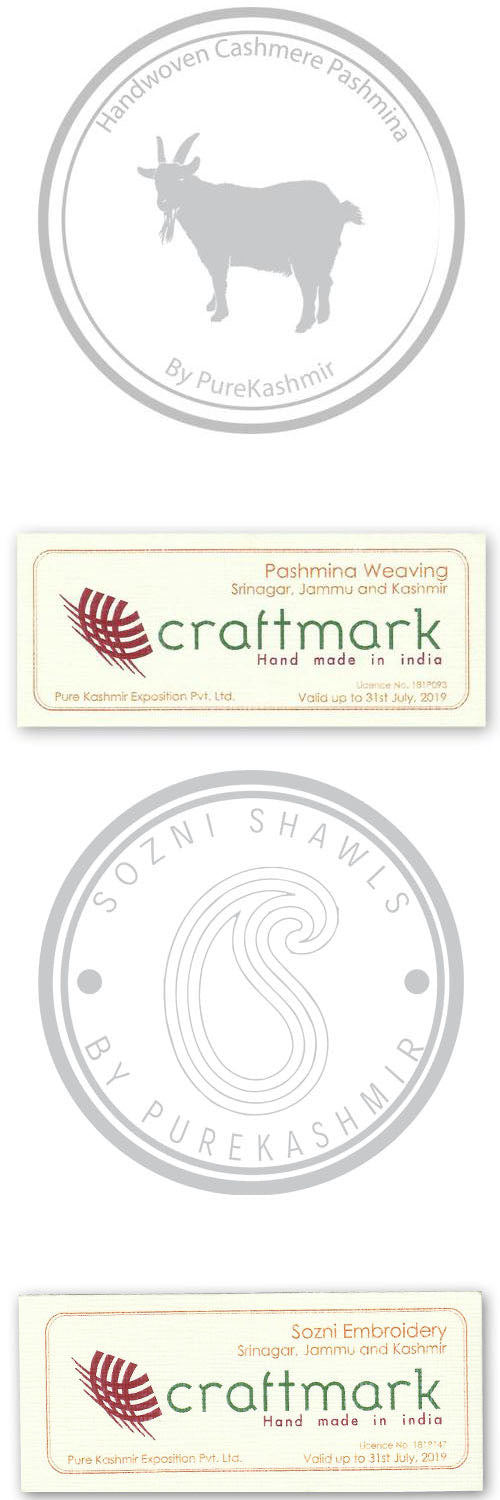

Handloom Pashmina Weaving
The oldest and the most suitable way of making a Cashmere Shawl. Unsurpassed quality and craftsmanship.

Certification
Our Pashmina Weaving Process is Certified by Craftmark India Under Licence No. 181P092.

Guaranteed Authentic
No questions asked money back guarantee on authenticity of all our products.
What Is Sozni?
SOZNI is one of the most sophisticated forms of Needle Embroidery in the world. This extremely fine, delicate and artistic needle work is only practiced in Kashmir and has no parallels anywhere else.
Read More